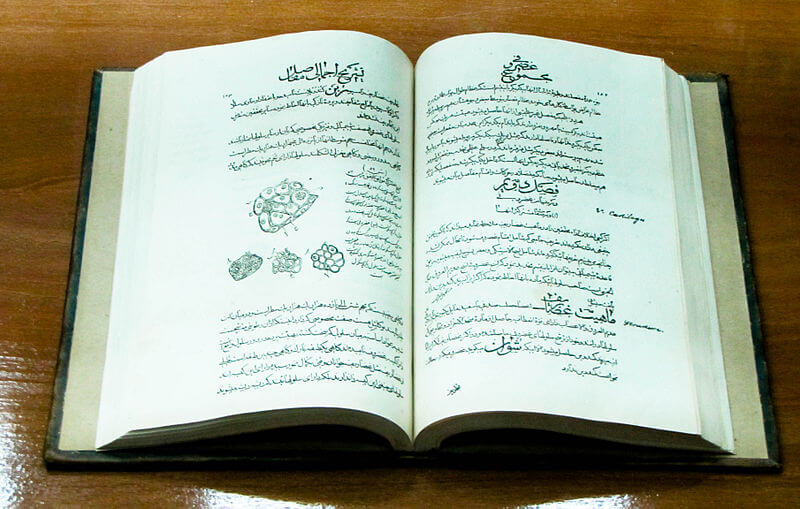Nowadays, when we talk about Clinical Psychology and mental health, names such as Sigmund Freud, Ivan Pavlov and Carl Rogers spring up. It is often mistakenly assumed that the field of Clinical Psychology evolved only during the 19th century, when mental disorders were officially recognized as by-products of some dysfunction in the mind of the individual.
Of course, it is not that people did not suffer from psychological disturbances prior to that. In the Western world, especially Europe, as well as in pre-Islamic Egypt, it is a historical fact that the mentally ill were subject to brutal forms of treatment, ranging from skull drills to being caged and locked up for quite a long duration. However, not many people are aware that when folk elsewhere were busy drilling metals through people’s skulls, doctors in the Islamic heartlands had already come up with logical, humane and medicinal treatments for psychiatric illnesses.
Such doctors back then did not refer to themselves as “psychologists” or “psychiatrists”, but their contributions and efforts played a great role in the evolution of Psychology itself. This article focuses on the contributions of Islamic physicians and doctors towards the recognition and treatment of mental illnesses, as well as towards the growth of Psychology as a field of study.
Clinical Psychology’s Debt To Islamic Civilization
The Earliest Psychiatric Hospitals
Although it were the Greek physicians and anatomists who had identified psychiatric illnesses to be a result of physiological imbalance, the Muslims were the first to build specialized hospitals where the psychologically suffering patients could seek medical help.
Baghdad witnessed the establishment of its first psychiatric hospital as early as the 8th century, where disorders of the mind were treated just like other bodily diseases (that is, without the involvement of enchantments, magic and of course, skull drills). Treatment of various mental illnesses included the use of several techniques, such as prescribing medicines/concoctions, healing baths and occupational therapy, etc. – most of it remains in use even today.
Why is this of importance? Because including a psychiatric ward in a hospital or a “Bimaristan” (as hospitals were known back then in the Middle East), marked a significant shift in the attitude towards mental illnesses. Knowing that one could approach a hospital, which was open to people from all classes and religions, for his/her psychiatric problems just like other physical illnesses, surely reduced the mysticism and taboo that surrounded psychological disorders. As such, Islam contributed a lot towards the development of a sensible and rational outlook towards illnesses, rather than promotion of senseless magic cures.
Theorists And Practitioners
Let us look at the roles of some of the greatest Muslim scholars in this field.
Ibn Sina
Ibn Sina (980-1037 CE) is amongst the most well-known names for his contribution to the study of the psyche of humans. He adopted many of the ideas of the Greek philosophers, in particular that of Aristotle, to develop theories as well as map out treatments for several psychiatric conditions.
In particular, he recognized the concept of the three souls proposed by Aristotle; namely the Vegetative, the Sensitive and the Rational. He took this typology a step further by stating that in humans, the Vegetative and the Sensitive souls (the two souls we share with lower species)link us to the Earth, and the Rational psyche gives us the power to understand and connect to the Divine. Thus, it is our rational nature that sets us apart from animals.

In addition, Ibn Sina proposed seven inner senses that humans possess. These inner senses; namely common sense, retentive imagination, composite animal imagination, composite human imagination, estimative power, memory and processing; enable human beings to think rationally. This theory marks Ibn Sina’s genius that pioneered the Theory of Reasoning way back in the 9th century!
His work also included Brain Mapping, that is, discovering the different functions that different parts of the brain are responsible for, but couldn’t go much further in this area as Islam prohibited him from performing any kind of dissection. He also recognized the link between the mind and the body, what we now know as psychosomatic disorders, and perhaps the assumption behind the bio-psycho-social model. Using these meticulous findings of his, Ibn Sina developed a whole host of treatments for various psychological disorders. His book, al-Qanun fi at-Tibb, or The Canon of Medicine, was used in the medical curriculum of several European universities for over 500 years.
Al Razi
Al Razi (854-925 CE) was another influential figure in this field. As a physician of the psychiatric ward at the earliest mental institution of the world, he identified and documented a number of psychological conditions along with their treatments in his books al-Mansuri and al-Hawi.

He is also known for his use of Psychology of Self-Esteem for curing his patients.
Imam Al Ghazali
Centuries before Watson’s famous experiment with little Albert yielded that fear is a learned response, Imam Al Ghazali (1058-1111 CE) theorized that children learned fear through negative experiences. He also experimented upon his own psyche using the method of introspection. Al Ghazali was also among the first ones to recognize how needs like hunger and anger drive a person to behave in specific ways, long before these famous theorists such as Maslow and Hull came to the fore.
Other than these physicians, even the poets and philosophers of those times were aware of mental ailments. Rumi, in his poem The Guest House, talked about depression as a mood of life to be embraced.
This being human is a guest house.
Every morning a new arrival.A joy, a depression, a meanness,
some momentary awareness comes
As an unexpected visitor.Welcome and entertain them all!
After all, acceptance of one’s condition is perhaps the first step of psychotherapy.
Conclusion
The works of these great Muslim scholars and physicians are much more than just historical literature. In an age, where the psychologically unwell patients (who needed that extra level of care) were abandoned, or subjected to painful torture to cast out the “evil”, establishment of hospitals and offering treatments based on humane principles was definitely a revolutionary step. It goes without saying that Islamic Iconoclasm paid a big role in this development – Islam outlawed and forbade torture or magic spells for driving out evil spirits, and as such, promoted the development of reasoning and logical treatment for various mental and physical illnesses.
Owing to the bias of later historians and other scholars from the West, many Muslim contributions in the field of Psychology could not gain the recognition they deserved. Nevertheless, it is obvious that Muslim scholars and Islamic thought played an enormous role in the treatment of mental issues, psychological disorders as well as the growth of Psychology in itself.
Editor’s Note: It must be noted by the readers that many scholars have issued rulings against certain aspects of Psychology, most emphatically referring to the practices of some psychologists wherein they attempt to define human behavior in absolute terms, without bearing in mind the Will of Allah. This, of course, bears no resemblance to the practical implementations of Clinical Psychology by Muslim scholars. Read more here.
All Images: Wikimedia Commons (The Canon of Medicine | The Book of Medicine)



